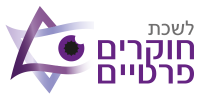The Polygraph — As a Tool for Periodic Employee Screening
Time and Again, Cases Are Exposed and Publicized in the Media Where Employees of Companies Embezzle Company Funds or Betray Trade Secrets. This Phenomenon Exists in Government Bodies, Public Companies, and Private Companies Alike. We All Recall the Embezzlement Case at the Trade Bank, in Which Ms. Eti Alon, an Employee, Embezzled Massive Sums of the Bank’s Money, Ultimately Leading to Its Collapse. According to Reports, Ms. Alon Opened 206 Fictitious Accounts, Through Which She Issued Back-to-Back Loans and Withdrawn the Loan Funds for Her Own Use. It Was Also Reported That the Embezzlement Continued Over Several Years.
The Investigation of the Embezzlement Highlighted the Lack of Oversight and Control Within the Bank, Which Essentially Allowed the Embezzlement to Continue. The Total Amount of Money Stolen by Ms. Eti Alon During the Period in Question Was Reported to Be Approximately 271 Million Shekels.
The Phenomenon of Embezzlement and Theft by Employees Requires Any Employer Wishing to Protect Their Enterprise, Property, Trade Secrets, or Sensitive Client Information to Maintain a Regular Monitoring System and to Conduct Proactive Inspections and Audits as Part of the Organization’s Routine Operations. These Inspections and Audits Should Cover Processes Related to the Receipt/Release of Goods or Services, Receipt/Disbursement of Funds, and Periodic Checks of Employees Holding Positions Requiring a High Degree of Trustworthiness and Personal Integrity. This Includes Employees Positioned at Sensitive Information Junctions, Handling the Receipt and Release of Goods, Collecting Payments, Managing Inventory, Executing Sales, Pricing Services for Clients, Marketing, Sales, and Distribution, as well as Employees with Access to Warehouses, Offices, Restricted Areas, Documents, and Sensitive Information — Especially During Non-Routine Operating Hours of the Organization, Such as Security Guards and Cleaning Staff.
Past Experience Shows That, More Than Once, Security Guards and Watchmen Have Been Involved in Thefts and Embezzlements, Exploiting Their Access to Warehouses and Inventory During Hours When There Is No Activity or Employee Presence.
At a Large Beverage Company, Anonymous Information Was Received Indicating That the Weekend Guards Were Systematically Involved in the Theft of Large Quantities of Goods. An Inventory Shortage Check Did Not Reveal Unusual Discrepancies; However, With the CEO’s Approval, a Covert Investigation Was Conducted, Which Included Surveillance of the Company’s Site Over the Weekend. During the Investigation, the Regular Weekend Guards — Who Were "Shabbos Goyim" (Gentiles Performing Work on the Sabbath for Religious Reasons) — Were Documented Bringing Delivery Trucks Into the Operational Yard and Loading Them, Using Forklifts, With Entire Pallets of Goods, Which Were Later Unloaded at the Destination of the Stolen Merchandise.
Cleaning Staff — Who Often Roam Within the Inner Sanctums of Companies, Including Conference Rooms and Executive Offices — Also Have Access to Sensitive Information and Classified Documents, Whether Left on Desks or Disposed of in Paper Waste Bins Destined for Shredding. Several Years Ago, It Was Reported in the Newspapers That a Private Investigator, Seeking Sensitive Information From the Offices of a Cellular Company on Behalf of One of His Clients, Recruited His Mother, Who Was Employed There as a Cleaning Worker, to Steal Documents for Him From Within the Company Offices. Eventually, the Cleaning Worker Was Caught Removing Documents From the Company and Led Investigators to Her Son, the Private Investigator.
In Certain Cases, Cleaning Staff May Also Exploit the Fact That They Remove Trash Bins From the Premises to Conceal Various Goods Inside These Bins.
A Study Published in Recent Months by the U.S. Department of Defense (DOD) Concluded That Conducting Periodic and Random Polygraph Examinations Is Extremely Vital and Serves as a Key Tool in Improving Security and Safety Levels. According to the Study, a Total of 41,057 Random Periodic Polygraph Tests Were Conducted Over Approximately One Year, Until May 2012, on Employees of Various State Entities Related to U.S. Security. During These Tests, 3,903 Cases Revealed Involvement of Examinees in Various Offenses — Ranging From Minor Violations to Concealment of Genuine Espionage Attempts by Foreign Intelligence Services and Other Serious Offenses. Within the First Five Months of Testing Alone, 1,470 Cases of Different Offenses Were Uncovered, Including: Child Pornography, Drug-Related Offenses, and Document Forgery. It Was Reported That in Most of the Cases Uncovered, There Had Been No Prior Information Regarding the Examinees’ Involvement in These Offenses — Until the Polygraph Tests Were Conducted.
In Light of All the Above, Conducting Periodic and Random Polygraph Tests for Employees Is a Highly Important and Effective Tool for Exposing and Preventing Fraud, as Well as the Leakage of Sensitive Information and Organizational Secrets.
When Conducting a Periodic Polygraph Test, Relevant Questions Are Formulated That Relate Specifically to the Examinee’s Role and to the Field of Activity of the Company Employing Them.
When Referring to Warehouse Workers, for Example, the Following Questions May Be Asked:
• In the Past Six Months, Have You Stolen Merchandise From the Company's Warehouse?
• In the Past Six Months, Have You Collaborated in Any Way With Another Person to Steal Merchandise From the Company's Warehouse?
• In the Past Six Months, Have You Privately Sold Items of the Company's Merchandise?
When Referring to Delivery Drivers, the Following Questions May Be Asked:
• In the Past Six Months, Have You Stolen Merchandise From the Company's Warehouse?
• In the Past Six Months, Have You Stolen Merchandise That You Were Supposed to Deliver to a Customer of the Company?
• In the Past Six Months, Have You Privately Sold Merchandise of the Company?
• In the Past Six Months, Have You Stolen Money Collected From the Company’s Customers?
When Referring to Security Guards and Watchmen, the Following Questions May Be Asked:
• In the Past Six Months, Have You Been Involved in Stealing Merchandise From the Company?
• In the Past Six Months, Have You Been Involved in Stealing Any Equipment From the Company?
• In the Past Six Months, Have You Collaborated With Any Individual in Stealing the Company's Confidential Internal Information?
• In the Past Six Months, Have You Been Asked by Anyone to Collaborate in Stealing From the Company?
When Referring to Cleaning Staff, the Following Questions May Be Asked:
• In the Past Six Months, Have You Stolen Food Products From the Company's Kitchen?
• In the Past Six Months, Have You Collaborated With Another Employee in Stealing From the Company?
• In the Past Six Months, Have You Stolen Any Equipment From the Company?
• In the Past Six Months, Have You Collaborated With Any Individual in Stealing the Company's Confidential Internal Information?
• In the Past Six Months, Have You Stolen Cleaning Supplies From the Company?
When Conducting Periodic Random Polygraph Tests for Employees, Several Guidelines Must Be Followed:
A. Notify the Examinees at Least One Day in Advance About the Intention to Test Them and the Scheduled Time of Their Test, and Explain That It Is Part of a Routine Periodic Examination. Polygraph Tests Should Not Be Conducted Unexpectedly — This Could Undermine the Test and Significantly Affect Its Reliability.
B. Ensure That the Examinee Arrives for the Test After Having Had Sleep. If They Worked the Night Shift, They Should Be Allowed to Sleep and Take the Test When They Are Well Rested.
C. Ensure That an Examinee Who Regularly Takes Medication Does So as Prescribed and Does Not Skip Their Medication on the Day of the Test. The Examinee Should Be Instructed to Inform the Examiner About Any Medication They Are Taking.
D. In Cases Where an Interpreter Is Required, Arrangements Should Be Made in Advance. Whenever an Interpreter Is Needed, Ensure That an Appropriate Person Is Available for the Task — One Who Has No Connection to the Examinee and Certainly No Supervisory Relationship. The Interpreter Must Be Fluent in Both Hebrew and the Examinee’s Language to Accurately Translate the Examiner's Words into the Examinee's Language, and Formulate the Questions as Directed by the Examiner — In the Examinee's Language. During the Polygraph Examination, the Test Questions Should Be Read to the Examinee by the Interpreter in Their Language.
In Conclusion:
The Periodic Polygraph Test Is an Important and Significant Tool for Exposing Offenses and Embezzlements, as Well as Creating an Atmosphere of Oversight and Supervision, Reducing Offenses in the Long Term. It Should Be Emphasized That These Tests Are Not a Substitute for Other Essential Controls Over Work Processes and the Implementation of Organized Procedures, Ongoing Supervision, and Monitoring by a Professional — the Security Officer. Starting from the Employee’s Onboarding Stage and Conducting a Thorough Initial Interview, Including a Reliability Check, Conducting Pre-Employment Polygraph Tests for Candidates for Positions Requiring a High Degree of Trust and Integrity, Including Access to Funds, Goods, or Organizational Secrets, Implementing Organized Work Procedures Related to the Receipt and Release of Goods, Handling Returns and Losses, Supervision of the Destruction of Defective Goods, Handling Finances, Engaging Sources Among the Organization’s Employees, Conducting Ongoing Inventory Counts — as Well as Random and Proactive Spot Checks, Performing Surprise Inspections on Warehouse Workers, Pickers, and Delivery Teams, and More.


